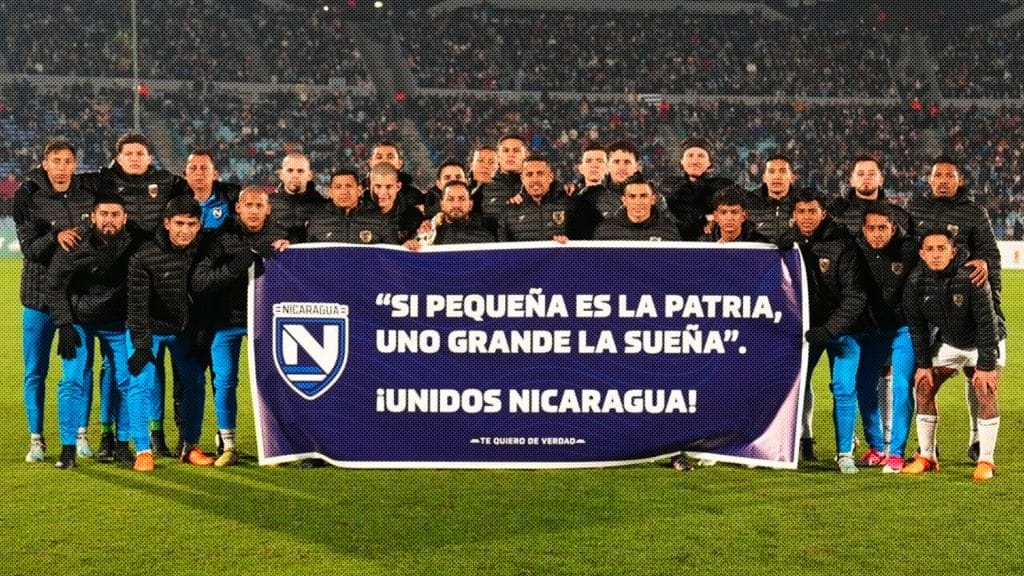Fenifut will exhaust all legal avenues to appeal the sanctions imposed by Concacaf.

The Nicaraguan Football Federation (Fenifut), rejected the decision of the Disciplinary Committee of the North American, Central American and Caribbean Football Confederation (Concacaf), to expel the National Team of the Central American country from the 2023 Gold Cup and order relegation to the League B of the League of Nations; requesting his reinstatement.
The most recent Fenifut statement detailed that after complying with the correct procedure and once the documentation was sent “for the due appeal before the CONCACAF Appeals Committee, on the case of possible improper alignment of a player from our National Team in the League of Nations 2019 and last edition, we are still waiting for a response from the governing body of football in our region”.
Keys on irregularities in sanctions
There are different key points for which the sanctions imposed by Concacaf lack foundation: The Universal Principle of Retroactivity and the Prescription Principle.
In this sense, the player in question, Richard Andrés Rodríguez Álvez, born in Uruguay, but with permanent Nicaraguan residence since June 2017, participated for the first time with the Nicaraguan Senior National Team in September 2019, fully complying with the Regulation of Application of the FIFA Statutes 2018 edition as with the 2019 Disciplinary Code.
The rules of those Statutes and Code, established that any player who, due to his nationality, met the requirements for calling with the selection of more than one Federation, would have to comply with several parameters; among them, having lived at least two years in the territory of the Federation. In other words, Rodríguez was in full compliance with this requirement.
Subsequently, in September 2020, the FIFA Congress approved a new Regulations for the Application of the FIFA Statutes, in which it establishes that it would no longer be two years but five, for a player with effective residence to participate in the selection of another country other than the country of origin.
A basic principle in all legal frameworks and in all regulatory norms is that any subsequent change to these does not have to affect those who have complied in due time and form with the statutes in force prior to their reforms.
Inapplicable retroactivity
The Concacaf Committee intends to retroactively apply rules and comments that did not exist at the time of the player Rodríguez’s lineup, in 2019; which violates the principle of good law and the essential rules of any procedure, since the new regulation must be applied as of its approval in 2020, and not before.
Concacaf would be acting in opposition to the Sports Courts, which avoid retroactivity if a player is affected, and establish that «retroactivity must be expressly provided for in the Law… FIFA has the consolidated practice of avoiding the retroactive application of its regulations in non-disciplinary fields.
Prescription: Eight games support a player of the Nicaraguan National Team
In any case, another existing setback in the actions of Concacaf against the Nicaraguan National Team player, would fall on the statute of limitations since 2021, of six games in which Rodríguez participated without any problem in the 2019 Concacaf Nations League.
And it is that the Disciplinary Committee in its FIFA Disciplinary Code, stipulates a period of two years for the prescription of the matches. Therefore, in a hypothetical case there was, at that moment, a lack of alignment, any procedure would be extemporaneous and lacking validity.
Rodríguez continued to play, two more games, in the 2022-23 Concacaf Nations League. In this scenario, retroactivity does not proceed, since the player completed two years of residing in Nicaragua as established in the 2019 regulations.
More inconsistencies in the Concacaf sanctions
In addition to the supports that show an erroneous application of sanctions by Concacaf; the resolution issued by the sports body lacks legality, because it was not headed by any member of the Concacaf Disciplinary Committee.
In this way, a bad performance by the Concacaf Competition Director would be presenting, infringing the provisions contained in the 2023 FIFA Disciplinary Code.
In this sense, it is the judicial bodies of FIFA, which in the case of Nicaragua were arbitrarily replaced by the Disciplinary Committee, which are empowered to impose the appropriate disciplinary measures.
Player was eligible to participate
Another of the irregularities presented by Concacaf is that Fenifut was not informed of the integration of the panel that would resolve this matter by the Disciplinary Committee, which violated the right to defense and hearing provided for in the FIFA Disciplinary Code.
You can read: Daniel Ortega denounces US hostilities against Interoceanic
In this context, Nicaragua would be disproportionately sanctioned, by imposing the maximum possible punishment on the National Team, without respecting the proper process.
There is a precedent with the player, Byron Castillo, from Ecuador, who faced a similar case a few months after playing the world cup with this South American country, however, in this case, the sanction was a fine and reduction of points in subsequent games, but the Ecuadorian team was not expelled.
Evidence submitted in a timely manner
Fenifut has repeatedly urged the Appeals Committee of said sports body to meet immediately and review the case, taking into account its urgency and the little margin remaining for the start of the 2023 Gold Cup competition.
In addition, he explained that «the necessary evidence was sent to demonstrate that in said scenario none of the articles established in the Disciplinary Codes and Regulations of Concacaf and FIFA have been violated.»
It may interest you: Iran’s President and Delegation Hold Historic Meeting with Nicaragua’s Parliament
The Fenifut also specified that the arguments presented before the decision made against the Selection of the Central American nation:
Violation of Nicaragua’s guarantee of hearing in the procedure before the Concacaf Disciplinary Committee, failure to apply the correct FIFA regulations in the resolution, impossibility of the Disciplinary Committee to establish the player’s residence dates, retroactivity of the law, jurisprudence and incorrect application of the principles of prescription and proportionality of the sanction.





